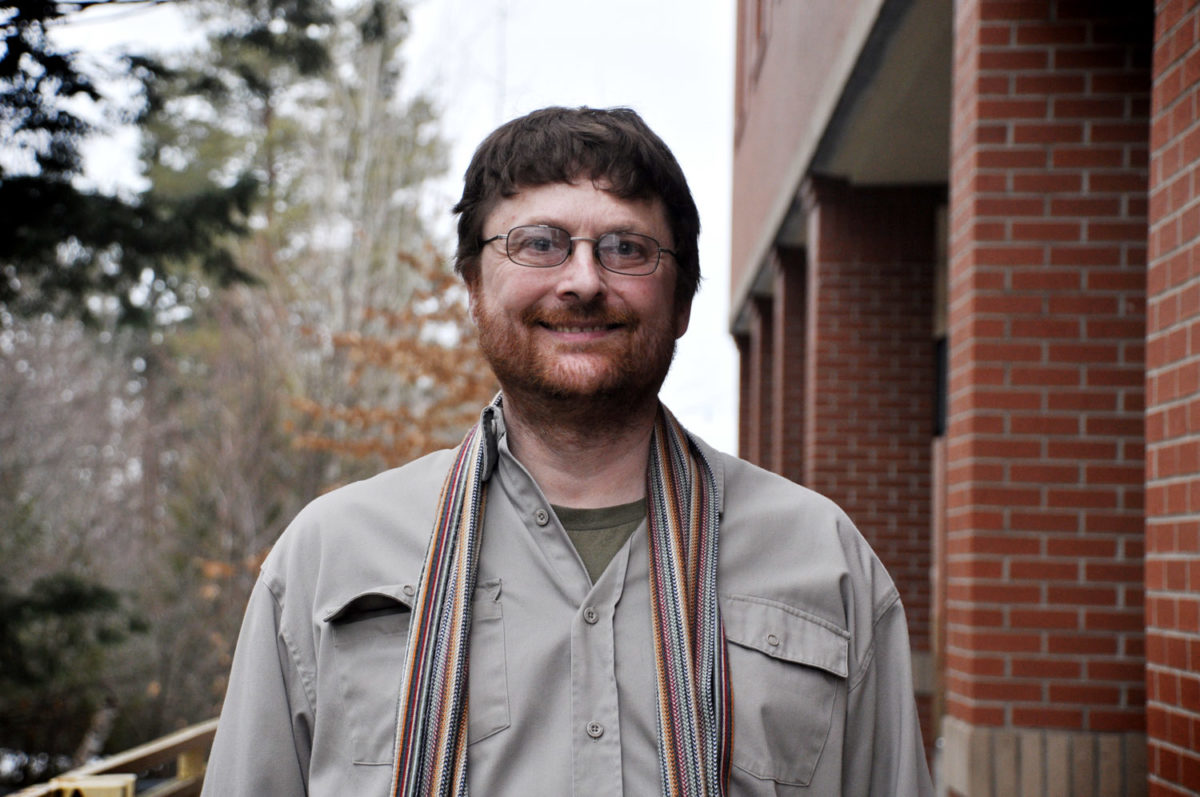
Some people feel their body isn’t how it’s supposed to be and, though not disabled, will ride around in a wheelchair. Some will go as far as to get rid of a limb, removing it on their own if they have to.
“One of my participants had an ‘accident’ with a miter saw,” said Clive Baldwin, Canada Research Chair in Narrative Studies at St. Thomas. “For all intents and purposes, in his world it was an accident.”
Identity is found in and shaped by narrative, said Baldwin. He received a grant last summer of $50,000 over two years to research the narratives surrounding transableism.
“Transableism is the desire or need to move from being able-bodied to being disabled through choice rather than accident or birth.”
Baldwin, 51, will study its impact on relationships and how people manage with medical and social labels.
“I like stories about how people make sense of their universe and make sense of themselves as a whole,” he said. “How it is we negotiate a viable identity through the stories we tell.”
Baldwin arrived at St. Thomas in May 2011. He was looking for employment in Canada because it was “partway between families.” His wife is from the United States but he grew up in Lancashire, England.
Stories of those who are marginalized are often more interesting than mainstream, said Baldwin. His PhD looks at women accused of a form of child abuse known as Münchausen syndrome by proxy. In this condition, the parent projects symptoms onto their child, in some cases actually causing illness.
He studied the narratives of those wrongfully accused.
“How does a narrative of innocence interact with a narrative of guilt?” he said. “You don’t find stories of the wrongfully accused in literature.”
Baldwin has already interviewed 18 people, and he interviewed five or six of them a second time. He’s planning more interviews and hopes to get a few more participants, hopefully with a wider range of disabilities.
So far only one participant will let Baldwin witness how he acts in daily life.
This participant lives with his parents, who think he’s able-bodied. He works at a disability agency where his coworkers think he’s disabled. This is the type of narrative Baldwin is studying.
“Because of the nature of the subject, people are very, very secretive,” he said.
This participant’s identity is protected. Baldwin himself doesn’t know some participants’ names or where they live.
“People don’t recognize what this is about,” he said. “They want to put it in some other framework, and that doesn’t do anybody any good. To be told your feelings are invalid or symptomatic of some form of mental disorder isn’t helpful.”
